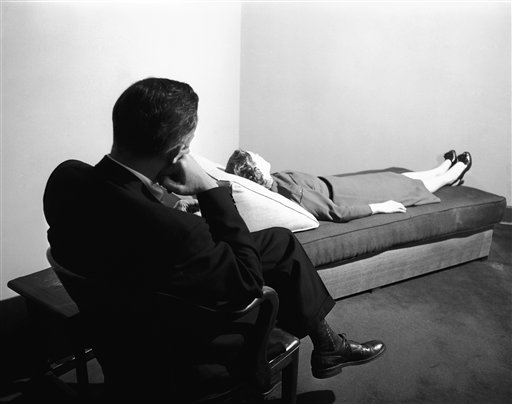Hi, I’m Doug Beaton, and this is my twenty sixth year helping people file bankruptcy cases, get through the process, and come out stress-free on the other side.
Here are a few free tips if you have been thinking about giving yourself a fresh start:

- Individuals need to take a credit counseling session before they can file any type of bankruptcy case. The vast majority of people take this session online, using a computer, tablet or phone browser. It shouldn’t cost you much more than $25 for this session. I can give specific recommendations on counseling providers if you call me.
- One of the worst things you could ever do to screw up your finances is to put a residential home into an LLC or similar partnership.
- The average length of a Chapter 7 bankruptcy case is about 4 months. That’s from the date of the initial interview with a lawyer through the closing of the case.

- Here’s the quickest primer on bankruptcy you’ll ever read: Chapter 7 is for credit card debt, medical debt, utilities, etc. For businesses, it means liquidation (i.e. closing up shop). Chapter 9 is for municipalities (but not, as of this writing, for states). Chapter 11 is the biggie, typically used by corporations that want to try to keep going by reorganizing. Chapter 12 is for family farmers. Chapter 13 is for individuals, typically used to halt foreclosure, IRS actions, or by people who earn more than the Chapter 7 means test allows. Chapter 15 involves foreign companies.

- In Massachusetts, you can file a homestead declaration anytime — even the day before bankruptcy — and it will be effective to protect home equity.
- Laymen (a.k.a. new clients) sometimes ask “What are the chances of my case going through?” “Going through” isn’t a technical term, but if you phrase the question as “How many Chapter 7 cases get discharges without assets being sold?” then the chance of the case “going through” is about 98%.
- Are you getting to be friends with the sheriff? If you file a bankruptcy case, you won’t have to go to hearings at state courts for lawsuits about your debts again. Payment agreements ordered by a local judge will be terminated.

- In New Hampshire, the homestead exemption is $120,000. Unlike Massachusetts, there are no forms to fill out or file. Also, the exemptions are “stackable”: if there are two owners (husband and wife, for example), each owner gets $120,000, so $240,000 total.
- Got divorced? Child support obligations are not discharged in bankruptcy. But property settlements may be discharged in a Chapter 13 case.
- Income taxes: some are discharged, some aren’t. Typically the tax debt needs to be more than three years old to be dischargable. The rules here are tricky, and may require review both by a bankruptcy lawyer and a tax professional like a CPA.
- Before filing a Chapter 13 case, make sure your insurance is up to date. You will need proof of current insurance for all vehicles you own, as well as for your home and any other real estate. IMPORTANT: insurance that has been purchased by the mortgage company (sometimes called a “forced place” policy) is NOT acceptable, and your case will be rejected. Debtors filing for Chapter 7 don’t have to worry about insurance.
- The robocalls from bill collectors stop about two days after a bankruptcy case is filed.
- It is never too early to start looking around for your social security card(s), or from getting new ones. At the end of a bankruptcy case, when you meet with the trustee, the trustee will check your social security number. You don’t have to have the card from Social Security, but it helps. Tax returns are NOT acceptable proof. W-2s and 1099s are OK. Save yourself some grief and find the card(s) now.
- Need to file a second time? There are a bunch of rules concerning this, but here’s the most common situation: if you filed a Chapter 7 case before, you need to wait eight years from the FILING date of the first case. Note that it is the filing date, not the closing date, discharge date, hearing date or anything else that controls. Can’t remember the filing date? Call me and I can look it up.
- Utility bills are unsecured debts (except for some water bills) that should be listed on a bankruptcy petition. Bankruptcy prevents shut-offs, and service continues at any rate. Many times zeroing out your utility bills can pay for the entire case all by themselves.
- If you bought a car more than two and one half years ago, and are still making payments, you may be able to reduce your car payment through a Chapter 13 case. This may not be a reason to file by itself, but the benefit could be substantial enough to pay the fees of the case.
- You can file for bankruptcy and still keep you car because you need it to get to work (or for any other reason). To keep your car, all you need to do is stay current on the loan, before and during the bankruptcy.
- In Massachusetts or New Hampshire Chapter 13 cases, you make your regular mortgage payments “outside the plan.” You can simply mail a check to the mortgage company as usual. This saves you money, because payments made through the Chapter 13 plan would be subject to the trustee’s 10% commission rate.
- Worried about the means test and having too high an income for bankruptcy? Chill. Comparing your family income to the state medians is only a starting point. Similar to income tax forms, there are many deductions available that can qualify debtors for Chapter 7 even though their incomes are high.
- If you are a homeowner, don’t move, and don’t make any changes to the ownership of the house (“taking X’s name off the house, etc.).” Don’t do anything that involves a deed without talking to a lawyer first. You could inadvertently kill your homestead exemption, which may be the most valuable thing you have when you file for bankruptcy!

- You need to tell your attorney about any legal cases you may have right away. This is not just people who have sued you, but cases that you might have against others. Think: car accidents, slip-and-falls, employment discrimination, sexual abuse. Your attorney can give you an idea about how these are handled in bankruptcy court. Don’t ever try to file a case without a lawyer if you have any of these (or similar) claims.
- If you have a struggling business, including self-employment, there is a possibility that a small business bankruptcy under the Small Business Reorganization Act could keep you afloat. How small does a business need to be to qualify? For Chapter 11 purposes, a business “small” if it has less than $7.5 million in debt.
- To file a bankruptcy case in a given state, the basic rule is that you should have lived there for the past 91 days. Like many legal rules, this one has exceptions. If you have moved recently, call me; more than likely I can use one and get your case filed now.
- If your income is above average and you are worried about the Means Test, the best possible debt you could have is a car loan. Better yet, for a married couple, two car loans. That’s because every car loan is worth up to a $738 per month deduction for the means test in Massachusetts. or to put it another way, a car loan could be worth up to $8,856 off your annual salary in deductions. Two cars would be up to $17,000. Debtors who drive old beaters and own them outright lose out under this system.
WHAT’S THE NEXT STEP?
* Want to read even more tips? Click here!
* If you are looking for more information on a specific topic, scroll up and enter the topic in the SEARCH box on the right. (You could try “exemptions” or “foreclosures” for example).
* If you are thinking “Sign me up, I want to get going!” you can click here to send me a message and I will contact you for an appointment for a free consultation.
* If you are on the fence or would like to speak to me directly, call me at (978) 975-2608 or click here and send a message.
* Click here to find out more about Attorney Beaton, or for more about this law firm, click here.
